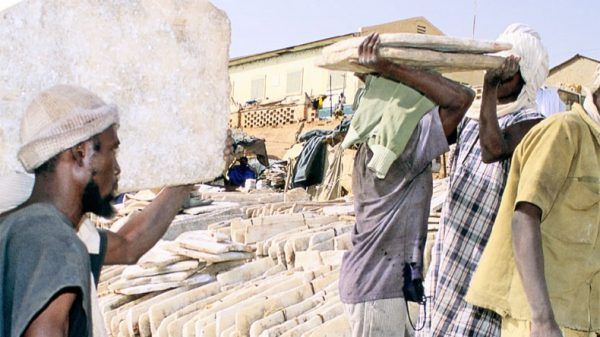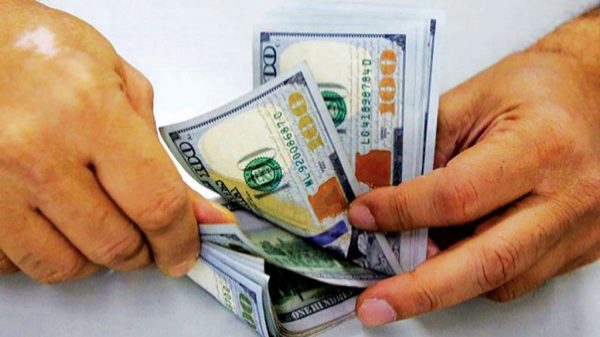Resource-rich, but poor

by Anis Chowdhury:
AHUNNA Eziakonwa, Director, United Nations Development Programme Regional Bureau for Africa, in her recent blog asked, ‘Why is the continent with 60 per cent of the world’s arable land unable to feed itself? … And how did Africa go from a relatively self-sufficient food producer in the 1970s to an overly dependent food importer by 2022?’
Richest, but poorest and hungriest
WITH the world’s 30 per cent of mineral resources and the largest precious metal reserves on earth, Africa has the richest concentration of natural resources — oil, copper, diamonds, bauxite, lithium, gold, hardwood forests, and tropical fruits.
Yet, Africa is the poorest continent with majority of the countries having per capita GDP of less than USD 1,500. Out of Africa’s 54 countries, 33 are least developed countries, while there are 46 LDCs globally. Africa remains the world’s least industrialised region, with only South Africa, currently categorised as industrialised, as Africa’s share of global manufacturing fell from about 3 per cent in 1970 to less than 2 per cent in 2013.
About 60 per cent of the world’s arable land is in Africa. Yet Africa remains a net importer of food. It is the only continent where the absolute number of undernourished people has increased over the past 4 decades. In 2020, 281.6 million Africans were undernourished, an increase of about 82 million since 2000.
Approximately 46 million people became hungry due to Covid-19. Sanctions following the war in Ukraine threatens Africa’s food security the most.
‘Shithole’ a pot of gold
TRUMP’S ‘shithole‘, Africa remains a pot of gold to the colonial powers. From around 1445 to 1870, Africa was the major source of slave labour, especially for the New World which includes Trump’s America. Colonial powers, Britain, France and Portugal all benefited massively, albeit differently, as Africa’s development was irreversibly ruined.
The ‘scramble for Africa’ from the late nineteenth century saw Europeans racing to secure raw materials monopolies through direct colonialism. Europeans’ divide-and-conquer tactics typically found a tiny African elite to collaborate with as colonial policies forced labour to build infrastructure to facilitate raw material extraction. Thus, capital accumulation greatly weakened African economies.
As Walter Rodney observed in his ‘How Europe Underdeveloped Africa’, ‘colonised Africans, like pre-colonial African chattel slaves, were pushed around into positions which suited European interests and which were damaging to the African continent and its peoples.’
Nonetheless various racist ideologies justified and facilitated European imperialism in Africa, e.g., as a ‘civilising mission’. Former Oxford historian, Harvard professor Niall Ferguson is the most prominent apologist of British imperialism, claiming inter alia that colonialism laid the foundations for post-colonial progress.
In 2019, Italian deputy prime minister Luigi Di Maio accused France of using currency arrangements to ‘exploit’ its former African colonies, ‘impoverishing Africa’ and causing refugees to ‘leave and then die in the sea or arrive on our coasts’.
Neo-colonialism French style
COLONIAL exploitation continues even after decolonisation. In 1960, General De Gaulle forced its former African colonies in the ‘CFA’ (Communauté Financière Africaine) franc zone insisting independence should be defined more by interdependence than true sovereignty.
Under the arrangement, these countries were compelled to deposit 100 per cent (and from 1973 to 2005, at 65 per cent, and since 2005 at 50 per cent) of their foreign currency in a special French Treasury ‘operating account’. They are also required to keep additional 20 per cent for financial liabilities arising from day-to-day foreign exchange transactions. Thus, CFA states can only retain 30 per cent of reserves, and are deprived of benefits from their natural resource export earnings.
Additionally, the central bank of eight West African States is requited to deposit 85 per cent of’ its gold reserves in the Banque de France, making the French central bank the world’s 4th largest holder of gold reserves.
Valéry Giscard d’Estaing, France’s former president, complained about US dollar’s ‘exorbitant privilege’ when he was president de Gaulle’s finance minister. But he ignored what a 1970 report by the French Socio-Economic Council said about CFA’s ‘incontestable advantages for France‘.
First, France could pay its imports from CFA countries in its own currency, saving its foreign currency for other imports and repay its debt in a world where the US dollar is the main currency for international trade and finance. It was especially advantageous at times of weak and unstable French franc.
Second, the French Treasury has often offered negative interest rates (in real terms) for African exchange reserves, meaning that the CFA countries have been losing money — it is as if they paid the French Treasury to keep their foreign reserves.
To add salt to the injury, investment income accruing is deployed as French aid to CFA countries in the form of loans to be repaid with interest. Worse, CFA countries themselves cannot use their own reserves as collateral for credit as they are held by the French Treasury. Thus, during the global financial crisis, they had to borrow, mainly from France, at commercial rates.
Third, France profited from supplying CFA franc at a fixed rate (1 CFA franc = 0.02 FF until 1994 when CFA franc was devalued by 50 per cent). This deprived CFA countries of seigniorage — the difference between the cost of printing a paper note and its face value, or ‘the way in which the state acquires command over real resources through its ability to issue fiat money‘.
Since the introduction of Euro in 1999, the seigniorage from the CFA arrangement is reaped by the European Union. When France joined the euro in 1999, one euro fetched 6.55957 FFs, or 655.957 FCFA. For every euro deposited, the FCFA equivalent is issued and made available to the depositing country.
Fourth, French companies operating in the CFA zone benefit from large and stable outlets for trade. They also have the guaranteed freedom to repatriate their revenues and capitals without any foreign exchange risk.
Unsurprisingly, 11 out of the 14 CFA states are least developed countries and at the bottom of the UN Human Development Index. They also experienced lower growth rates than non-CFA countries.
France’s former president Jacques Chirac reputedly admitted in 2001, ‘While speaking of Africa, we must check our memory. We started draining the continent four and a half centuries ago with the slave trade. Next, we discovered their raw materials and seized them’.
In 2008, Chirac reportedly noted, ‘We have to be honest and acknowledge that a big part of the money in our banks comes precisely from the exploitation of the African continent. Without Africa, France will slide down [to] the rank of a Third World power.’
His predecessor, Socialist Party president François Mitterrand warned France would become irrelevant in the 21st century without controlling Africa.
Thus, France deployed thousands of combat troops unilaterally on various missions, claiming its mission ‘legitimate’, whenever France’s monopoly of Africa came under threat. Some have argued that one of the first unconstitutional seizure of power in the post-independent Africa was linked to the issue of the CFA Franc. On January 13, 1963, only two days after printing Togo’s own currency, Sylvanus Olympio was killed in a coup.
The Lenin Peace Prize awardee Mali’s independence leader and first president Modibo Keita was ousted in a coup in 1968 six years after withdrawing Mali from the CFA Franc, attempting to rebuild his country’s economy on socialist principles.
The Cameroonian economist Tchundjang Pouemi, one of the leading critiques (along others such as Egypt’s Samir Amin) of the CFA Franc — who called the IMF, the Instant Misery Fund — was found dead allegedly because of his anti-CFA Franc opinions.
Neo-colonialism British style
A REPORT, ‘The New Colonialism’, in July 2016 found that British companies control Africa’s key mineral resources as 101 mostly British companies listed on the London Stock Exchange had mining operations in 37 sub-Saharan African countries, collectively controlling over USD1 trillion worth of valuable resources, and extracting USD 192 billion from Africa.
The report digs declassified documents to show that the British government continued to perceive the entire continent through an imperialist lens, primarily as a source of raw materials. Foreign secretary Ernest Bevin noted in 1948 the need to ‘develop the African continent and to make its resources available to all’.
A sentiment similar was expressed by a 1959 Cabinet Office study in preparation for the then-inevitable process of formal decolonisation. It noted that one of Britain’s two most important interests in Southern Africa was to develop trade and guard access to raw materials. Thus, Britain continued to support the apartheid regimes in South Africa and Rhodesia (Zimbabwe).
The UK increasingly using the promise of aid as a bargaining chip to secure access to African raw materials for British oil and mining companies in African countries. Britain’s International Development secretary is to ‘leverage’ foreign aid to strike trade deals.
Impoverishing Africa
A LARGE part of Africa’s predicaments also lies in the failure of liberalisation and privatisation policies, typically introduced as part of the International Monetary Fund’s structural adjustment programs that much of Africa was subjected to from the 1980s. The World Bank, the African Development Bank and every donor supported SAPs.
SAP advocates promised that soon private investment and export growths would follow, bringing growth and prosperity. Now, a few within the IMF and the World Bank admit that the neoliberalism was oversold, condemning the 1980s and 1990s to become ‘lost decades’ when the continent experienced declines in per capita income and rise in poverty.
While SAPs were officially abandoned in the late 1990s, the replacements, such as Poverty Reduction Strategy Papers or ‘New Partnership for Africa’s Development’ are ‘old wine in a new bottle‘. Although advertised as a ‘home-grown’ mandate, they are notable for promoting the same liberalisation and privatisation policies.
With trade liberalisation and greater specialisation, many African countries are now even more dependent on fewer export commodities. Thus, despite impressive economic growth rates during the commodity price booms, African economies have become more vulnerable to external shocks.
West’s failed aid promises and apartheid
MEANWHILE, within five years the G8 countries reneged on their 2005 Gleneagles pledge to provide an extra $25 billion a year for Africa as part of a $50 billion increase in financial assistance to ‘Make Poverty History’. Like-wise, G20’s new ‘compact with Africa’, showcased at Hamburg, to combat poverty and climate change effects has been quickly forgotten.
The powerful members of the Organisation for Economic Cooperation and Development blocked developing countries effort at the 2015 Addis Ababa conference on financing for development to have an inclusive process for international taxation under the United Nations in order to stem illicit transfer of funds. Africa lost $1.2–1.4 trillion in illicit financial flows between 1980 and 2009 — roughly equal to Africa’s GDP, and surpassing by far the money it received as aid over the same period.
Africa led the fight against the Big Pharma and their rich home countries to successfully tackle HIV/AIDs under the leadership of Mandela. But absence Mandela, Africa has suffered from ‘vaccine apartheid’ as powerful countries blocked meaningful waiver of Trade Related Intellectual Property Rights.
Dr Anis (Anisuzzaman) Chowdhury is adjunct professor, School of Business, Western Sydney University (Australia). He was the director of Macroeconomic Policy and Development Division and Statistics Division of the UN Economic and Social Commission for Asia and the Pacific, Bangkok and chief, Financing for Development Office of the UN Department of Economic and Social Affairs, New York.























Leave a Reply